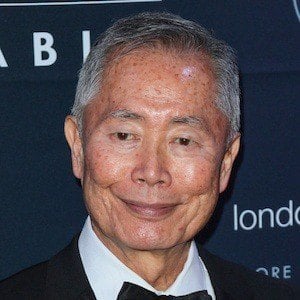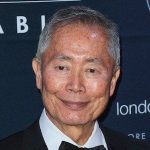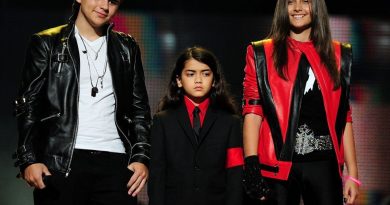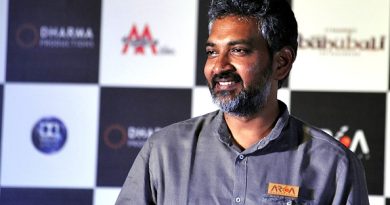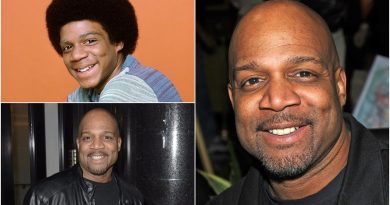George Takei Net Worth
George Takei Net Worth: George Takei is an American actor and author who has a net worth of $14 million. Takei started his career in Hollywood at a time when Asians were not often cast in American productions. He started doing voiceover work for Japanese monster films, and before getting his big break, George guest-starred on the TV shows “Perry Mason” (1959), “The Twilight Zone” (1964), and “My Three Sons” (1965). In 1965, Takei was cast as Hikaru Sulu on “Star Trek,” which ran from 1966 to 1969. Aside from the TV series, Takei appeared in six “Star Trek” movies. George has more than 200 acting credits to his name, and he has lent his voice to several animated projects, including “Mulan” (1998), “Free Birds” (2013), and “The Simpsons” (1991–2013). Takei has also appeared on the reality TV shows “I’m a Celebrity…Get Me Out of Here!” (2008) and “The Celebrity Apprentice” (2012). In 2004, George was awarded the Order of the Rising Sun, Gold Rays with Rosette by the Japanese government. He published his autobiography, “To the Stars,” in 1994.
George Takei Wealth Stats: Salary, Net Worth, and More
George Takei's net worth, salary and other interesting facts:
| Net Worth | $14 Million |
|---|---|
| Salary | N/A |
| Date of Birth | April 20, 1937 (age 87 years) | Gender | Male |
| Height | 5 Feet 8 Inches (1.73 m) |
| Profession | Actor, Author, Voice Actor |
| Nationality | American |
Career
Career: George began his Hollywood career doing voiceover work on the English-dubbed versions of the Japanese monster movies “Rodan! The Flying Monster” and “Godzilla Raids Again” in the late 1950s. He made his big screen debut in the 1958 film “Ice Palace,” and he soon appeared in the films “Hell to Eternity” (1960), “A Majority of One” (1961), and “Red Line 7000” (1965). In 1965, Takei landed the role of astrosciences physicist Hikaru Sulu on “Star Trek,” a role he reprised in the films “Star Trek: The Motion Picture” (1979), “Star Trek II: The Wrath of Khan” (1982), “Star Trek III: The Search for Spock” (1984), “Star Trek IV: The Voyage Home” (1986), “Star Trek V: The Final Frontier” (1989), and “Star Trek VI: The Undiscovered Country” (1991) as well as “Star Trek: The Animated Series” (1973–1974), “Star Trek: Voyager” (1996), and “Futurama” (2002–2013) and several video games. George starred as Kaito Nakamura on the superhero drama “Heroes” from 2007 to 2010, and he voiced General Lok Durd on a 2009 episode of “Star Wars: The Clone Wars.” He has appeared as himself on numerous TV shows, including “3rd Rock from the Sun” (1996), “Malcolm in the Middle” (2006), “Psych” (2006), “Will & Grace” (2006), “Party Down” (2009), and “The Big Bang Theory” (2010).
Personal Life
Personal Life: George revealed that he was gay in 2005, and he married Brad Altman in a Buddhist ceremony at L.A.’s Democracy Forum of the Japanese American National Museum on September 14, 2008. Takei is a co-founder of the museum as well as a member of the board of trustees, and he and Brad won $10,000 for the museum on a 2009 episode of “The Newlywed Game.” In 2013, George became a spokesperson for the Human Rights Campaign, serving as the face of their “Coming Out Project” and embarking on a nationwide speaking tour called “Equality Trek.” In 1973, Takei ran for Los Angeles City Council, coming in second to David Cunningham Jr., and was later appointed to the Southern California Rapid Transit District board of directors by Los Angeles Mayor Tom Bradley.
Inspirational Quotes by George Takei
In Indiana, gays and lesbians can be fired from their jobs with impunity, and in Arkansas, it's the same thing. We need those protective laws to truly have an equal society.
George Takei
I do think that Japan will be one of the nations that have equality, and that, too, will serve as an example for other Asian nations.
George Takei
I thought this convention phenomenon was very flattering, but that's about the extent of it.
George Takei
To do theater you need to block off a hunk of time.
George Takei
We were American citizens. We were incarcerated by our American government in American internment camps here in the United States. The term 'Japanese internment camp' is both grammatically and factually incorrect.
George Takei

